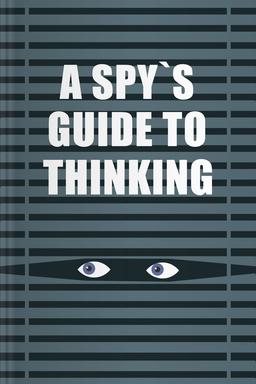Learning How To Learn
by Barbara Oakley PhD, Terrence Sejnowski PhD, Alistair McConville
What is Learning How To Learn about?
This insightful guide empowers students to master effective learning techniques without overwhelming their schedules. By combining practical strategies with brain science, it reveals how to enhance memory, tackle procrastination, and improve study habits. Suitable for kids and teens, the book offers tools to boost confidence and foster a love for learning, proving that academic success can be achieved with smart approaches rather than endless hours of study.
Who should read Learning How To Learn
- Students struggling with traditional study methods.
- Parents looking to help their children excel academically.
- Educators seeking innovative teaching strategies for their students.
What is Make It Stick about?
This book explores effective learning strategies based on cognitive science, challenging conventional study techniques. It emphasizes the importance of active recall, spaced repetition, and varied practice to enhance retention and understanding. Through engaging examples and practical applications, the authors provide insights into how to make learning more effective and memorable, making it invaluable for students, educators, and anyone interested in improving their learning outcomes.
Who should read Make It Stick
- Students seeking effective learning strategies.
- Educators aiming to enhance teaching methods.
- Lifelong learners wanting to optimize knowledge retention.
What is Feeling Good about?
This groundbreaking work explores cognitive therapy techniques to combat feelings of depression and anxiety. It offers practical strategies to challenge negative thought patterns and foster a positive outlook. Through exercises and insights, readers learn to recognize their emotional triggers and develop healthier thinking habits. With a compassionate approach, it empowers individuals to take control of their mental well-being and cultivate lasting happiness.
Who should read Feeling Good
- Individuals seeking to improve their mental health.
- Readers interested in cognitive behavioral therapy techniques.
- Anyone looking to boost their mood and self-esteem.
What is A Spy’s Guide to Thinking about?
This insightful guide delves into the mindset and tactics of espionage to enhance critical thinking and decision-making skills. It examines how spies analyze information, assess threats, and adapt to ever-changing situations. Through engaging examples and practical exercises, readers learn to adopt a spy's perspective, improving their ability to think strategically and creatively in everyday life.
Who should read A Spy’s Guide to Thinking
- Aspiring spies seeking insight into strategic thinking.
- Business professionals aiming to enhance their decision-making skills.
- Students of psychology interested in espionage tactics and mindset.
What is The Dorito Effect about?
This insightful exploration reveals the intricate relationship between flavor and our food choices. It delves into how artificially enhanced flavors have impacted our diet and health, suggesting that food's natural taste is being overshadowed by chemical additives. By examining the science of flavor, the book argues for a return to whole, naturally flavorful foods, emphasizing the importance of real taste in cultivating a healthier relationship with what we eat.
Who should read The Dorito Effect
- Food enthusiasts seeking deeper flavor knowledge.
- Health-conscious readers interested in food science.
- Culinary professionals exploring flavor enhancement techniques.




